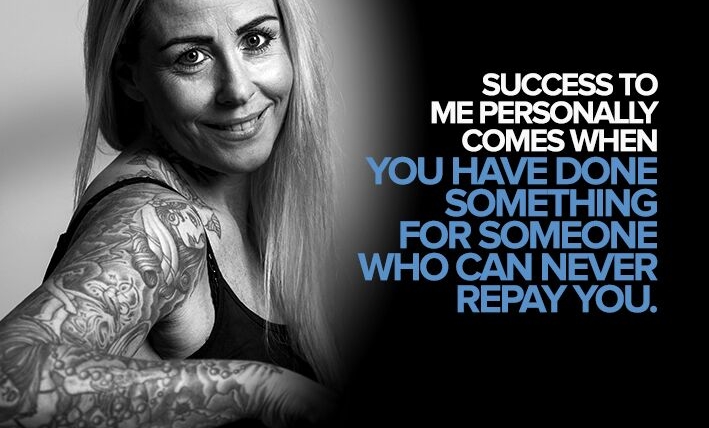
Speaking with Dr. Judy Monroe is a bit like drinking from a fire hose! She’s had an amazing career spanning more than three decades which began with her work as a family physician in rural communities and working in academia. Later, she was appointed Indiana’s State Health Commissioner by then governor Mitch Daniels and then served as a Deputy Director of the Centers for Disease Control and Prevention (CDC) just prior to assuming her current role as President and CEO of the CDC Foundation. Clearly, she’s thrived in leadership roles in areas where women have historically been underrepresented, and she was more than willing to share some of the secrets of her success.
1. Be willing to say “yes” to out of the box opportunities
Reviewing the accelerated (sometimes winding) trajectory of Dr. Monroe’s career path, it becomes obvious that much of her early success was a direct result of her simply being willing to say “yes” to out of the box opportunities. While many would have shied away from unorthodox requests, she was willing to be uncomfortable for a time in order to learn and do something completely new.
Her early years in academia provide a great example. During that time, she was offered the opportunity to be a regular guest on an Indianapolis call in radio show. As a result of her success (and growing notoriety) as an on air personality, she was later tapped to record a televised public service announcement that aired across Indiana. This visibility elevated her profile statewide and ultimately contributed to her name being floated to then governor Mitch Daniels (whom she’d never even met) to become Indiana’s next State Health Commissioner. Certainly, many physicians would have been hesitant to step outside the more comfortable clinical or academic roles when offered the radio gig, but her willingness to say “yes” to new, out of the box experiences clearly positioned her for unique opportunities and increased visibility down the road.
2. Don’t be intimidated by a learning curve for a new opportunity
Women in particular can be wired to shy away from a promotion or new opportunity until or unless they feel they’re 100% ready, but Dr. Monroe warns that that type of thinking may be stifling.
“I don’t think I’ve ever taken a job thinking I was a 10 out of 10. I love learning. I always knew I was a good student, and I had the confidence to know I’d learn what I needed along the way.” Dr. Judy Monroe
She says she also placed a lot of confidence in the broader team and her ability to learn from others – even learn from their mistakes. She insists, “There are two ways to learn – from your mistakes or others’ mistakes. As much as possible, I try to learn from the latter.” Ultimately, she had the confidence to tackle a learning curve and when given a choice, prioritized taking on a new challenge over playing it safe.
3. Don’t let the small things distract you from the big things
Dr. Monroe learned one of her biggest life lessons during an African Safari trip with her family. During a day in camp, she found that she’d wandered within just a few yards of a wild elephant who could have easily charged her. Fortunately, she was able to back away without harm. Later, she realized that it was because she was obsessively looking downward checking for possible snakes or bugs at her feet while walking through the camp that she completely missed the huge wild animal nearly right in front of her.
On the way home, she couldn’t help but notice the parallels to the workplace and used that experience to motivate her team. At a team meeting she explained, “Sometimes we can get caught in the minutia of the day to day and miss the gravity of the huge strides we’re making and the awesome work we do each day. Yes, details matter, but let’s always stay focused on the big stuff.” Similarly, she offers that advice to young professionals – never focus so much on the details that you lose sight of the big picture.
4. If “work life balance” isn’t realistic, strive for work life integration
Having started medical school in 1979, Dr. Monroe says she was among the first generation of women physicians insisting on “having it all”. Previous generations didn’t necessarily have that option and most tended to choose to either stay home full time or have a career, but her generation saw a new path and demanded more. A key to her work life balance success in many ways ironically was acknowledging that there was no perfect “balance”. While she strived to give her best self to both home and family, there would never be perfect equilibrium so she relied on family and community support and embraced work-life integration as much as possible.
“As a rural physician, I would make home visits and bring my daughter with me sometimes. I also remember bringing the kids with me to nursing home visits. The kids enjoyed it, and it was certainly therapeutic for the patients.” -Dr. Judy Monroe
Later, as the director of a residency program she made a point to institute family friendly policies which became a draw for top female candidates in particular. She recalls, “One top candidate expressed so much gratitude when we welcomed her bringing her newborn to the interview. She was a nursing mom, and we wanted to do everything possible to support that.”
5. Learn to unplug from work during time off
Dr. Monroe also learned to integrate work and home selectively, not all the time. She recalled a family vacation where she brought work frustrations with her which dampened the mood for everyone. This served as a trigger for her to work harder to unplug from work during vacation.
Admittedly, that’s easier said than done – particularly in leadership roles. She insisted that a key to her success in that area was discussing the issue with her team proactively. Ultimately, they formed a pact to support each other in disconnecting from work during vacation. She shared, “There was definitely a learning curve for the group and sometimes one of us would violate the pact by sending an email about an issue while on vacation. To gently remind them of our agreement, we would just refuse to respond!”
Photo Source: Dr. Judy Monroe





